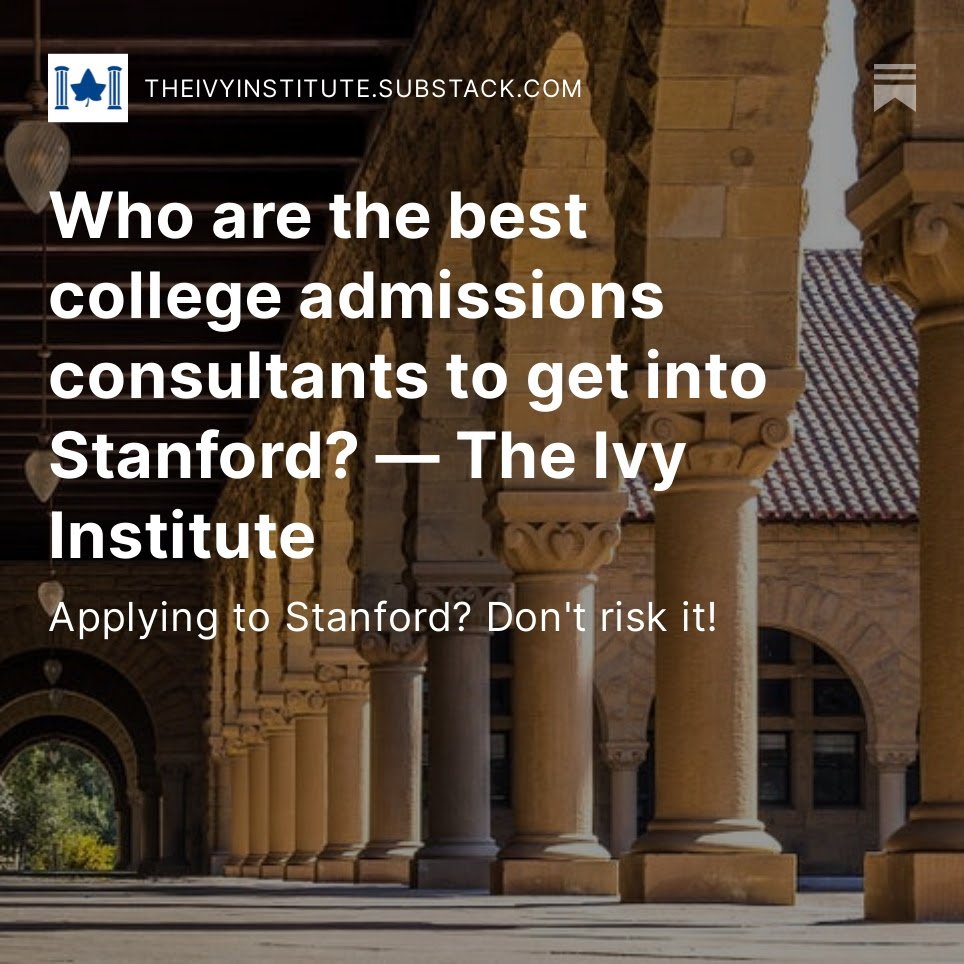What is Stanford looking for in a successful applicant?
Stanford University, nestled in the heart of Silicon Valley, stands as one of the most prestigious and sought-after universities in the United States. Renowned for its cutting-edge research, rigorous academic programs, and vibrant campus community, Stanford attracts a diverse pool of high-achieving and ambitious students from around the globe. The admissions process at Stanford is highly competitive, with the university receiving thousands of applications each year for a limited number of spots. To increase your chances of acceptance, it is crucial to understand what the admissions committee is looking for in a candidate. In this article, we will go into the key factors that Stanford considers when making admissions decisions, providing invaluable insights for prospective applicants, and what the admissions officer is looking out for in an application.
1. Academic Excellence: A Strong Foundation for Success
At Stanford, academic excellence is a top priority. The admissions committee looks for students who have consistently excelled in their high school coursework. A high GPA and challenging course load in core subjects such as math, science, English, and social studies are essential. Stanford seeks candidates who have demonstrated a genuine passion for learning and have consistently pursued academic excellence throughout their high school years.
Standardized test scores, either from the SAT or ACT, are also a significant factor in the admissions process. While Stanford practices a holistic approach to admissions, competitive test scores can bolster an applicant's profile and demonstrate their readiness for the academic rigor of the university.
2. Intellectual Curiosity: Fostering a Passion for Learning
Stanford values students who possess a genuine curiosity and passion for learning. The admissions committee looks for candidates who have pursued intellectual exploration beyond the confines of the classroom. Participation in academic competitions, research projects, independent study, and enrichment programs can showcase an applicant's intellectual curiosity and drive.
Extracurricular activities that align with an applicant's academic interests and demonstrate a commitment to learning are highly valued. Whether it's a science fair project, a writing competition, or participation in a debate club, these experiences can highlight an applicant's dedication to knowledge acquisition and intellectual growth.
3. Leadership Potential: Making a Positive Impact
Stanford seeks to admit students who have the potential to become leaders and change-makers in their communities and beyond. The admissions committee values candidates who have demonstrated leadership skills and a commitment to making a positive impact on society.
Leadership can manifest in various forms, from leading a school club or organization to taking on leadership roles in community service projects. Applicants should highlight instances where they have taken initiative, demonstrated responsibility, and worked collaboratively to achieve meaningful outcomes.
4. Personal Qualities: Attributes that Define Character
In addition to academic achievement and leadership potential, Stanford looks for personal qualities that reflect an applicant's character. The university values students who are self-motivated, resilient, and adaptable.
Applicants should demonstrate their ability to overcome challenges, handle setbacks with grace, and embrace opportunities for personal growth. Demonstrating resilience and adaptability in the face of adversity can showcase an applicant's potential to thrive in a demanding academic environment and contribute positively to the campus community.
5. Demonstrated Interest: Showing a Genuine Connection
Stanford seeks students who have a genuine interest in the university and what it stands for. Applicants should invest time in researching Stanford's programs, resources, and campus culture to demonstrate their sincere desire to be a part of the Stanford community.
Campus visits, attending information sessions or college fairs, and engaging with admissions officers or current students can all demonstrate a genuine interest in Stanford. Applicants should use their essays and supplemental materials to explain why they believe Stanford is the right fit for their academic and personal aspirations.
6. Diversity: Embracing a Rich Tapestry of Perspectives
Diversity is highly valued at Stanford, and the admissions committee strives to create a dynamic and inclusive campus community. The university seeks to admit students from diverse backgrounds, cultures, and experiences, recognizing the invaluable contributions of different perspectives.
Applicants should embrace and celebrate their unique identities, experiences, and cultural backgrounds. Sharing personal narratives that highlight diversity and perspectives can enrich an applicant's profile and demonstrate their potential to contribute to Stanford's vibrant and diverse community.
Crafting a Compelling Application for Stanford
When applying to Stanford, it's crucial to approach the application process holistically. Each component of the application—academic records, test scores, extracurricular activities, essays, and letters of recommendation—plays a role in building a compelling narrative about the applicant's strengths, passions, and potential contributions to the Stanford community.
1. Personalizing Essays: The Power of Storytelling
Essays are a powerful platform for applicants to convey their unique personalities, experiences, and aspirations. It is essential to craft authentic and compelling essays that reflect the applicant's voice and perspective. Applicants should avoid generic responses and use the essays as an opportunity to showcase their individuality and passion for learning.
2. Selective Extracurricular Involvement: Quality Over Quantity
Stanford values depth and impact in extracurricular involvement rather than a laundry list of activities. Applicants should focus on meaningful engagement in a few activities that align with their interests and demonstrate dedication and leadership.
3. Stellar Recommendations: Building Strong Advocacy
Letters of recommendation from teachers, counselors, or other mentors can provide valuable insights into an applicant's character, achievements, and potential. Applicants should carefully choose recommenders who know them well and can advocate passionately for their strengths and accomplishments.
4. Thoughtful Supplemental Materials: Going Beyond the Requirements
Stanford's supplemental materials, such as the "Additional Information" section or the Arts Portfolio, offer applicants opportunities to showcase exceptional talents, experiences, or circumstances that might not be evident in other parts of the application. Applicants should use these sections thoughtfully to provide additional context to their profiles.
5. Early Application Consideration: The Restrictive Early Action Option
Stanford offers a Restrictive Early Action (REA) application option for students who are confident in their commitment to the university. Applying through REA shows a genuine interest in Stanford and allows students to receive their admission decision in December.
6. Honoring Integrity: Ethical Considerations in the Application Process
It is essential for applicants to maintain the highest standards of integrity throughout the application process. Plagiarism, dishonesty, and unethical practices are strictly prohibited and can lead to severe consequences.
The Final Word: Standing Out in the Applicant Pool
In the highly competitive admissions landscape of Stanford University, applicants should strive to stand out as unique individuals who embody the university's core values of academic excellence, intellectual curiosity, leadership potential, personal qualities, and a genuine commitment to making a positive impact. A thoughtful and holistic approach to the application, combined with a passion for learning and a dedication to personal growth, can position students as compelling candidates for admission to this prestigious institution.
As a general principle, when applying for ivy league schools and the Ivy plus, it is important to work with college advisors who can craft an effective list of passions and a strong track record for a college application that resonates with the admissions officers.
Ultimately, the admissions process at Stanford is designed to identify students who will thrive academically, contribute meaningfully to the campus community, and go on to make significant contributions to society. As you embark on your application journey, remember to be authentic, passionate, and true to yourself. While the path to acceptance may be challenging, your dedication and perseverance will undoubtedly leave a lasting impression on the admissions committee. Good luck as you pursue your dreams at Stanford University!







